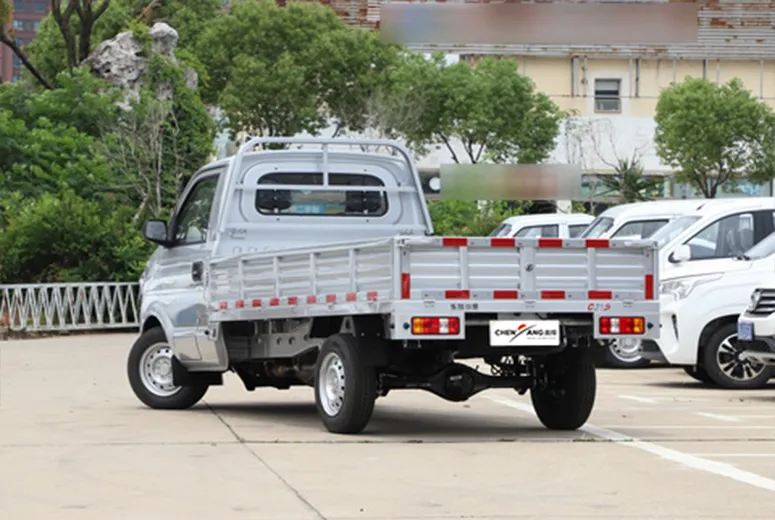1 月 . 29, 2025 02:25
Back to list
light duty truck classification
The classification of light duty trucks is a vital aspect for businesses and individuals aiming to optimize transportation, enhance service delivery, and improve logistics operations. This classification focuses on trucks with a gross vehicle weight rating (GVWR) of under 10,000 pounds, bridging the gap between passenger vehicles and heavy-duty commercial vehicles. Understanding the intricacies of this classification can lead to better decision-making, tailored solutions, and optimized resource allocation.
The design and functionality of light duty trucks also offer versatility. From pickups to compact vans and SUVs, the market provides numerous configurations that cater to a wide array of commercial and personal applications. Pickups, for instance, are known for their open bed design, making them ideal for transporting bulky items, whereas compact vans offer enclosed space, which is beneficial for delivery businesses requiring security and protection for their goods. Expert opinions suggest that understanding the financial implications associated with owning and operating light duty trucks can lead to informed purchasing decisions. Factors such as initial cost, financing options, fuel efficiency, maintenance requirements, and resale value should be evaluated. Leasing options are also available for businesses looking for flexibility without the long-term commitment of purchasing a vehicle outright. When purchasing a light duty truck, professional consultation with automotive experts can provide insights that are tailored to specific business needs. These specialists can offer advice on vehicle selection, maintenance schedules, and cost management, enhancing the operational efficiency of these vehicles in your fleet. Trustworthiness in the realm of light duty trucks can be evaluated through manufacturer reputation, customer reviews, and aftermarket service availability. A reputable manufacturer known for quality and reliability can greatly influence the overall experience and satisfaction of owning a light duty truck. Engaging with other users and experts in online forums and communities can offer practical advice and firsthand experiences, contributing to a well-rounded understanding of what to expect from a particular model or brand. In conclusion, understanding light duty truck classification provides essential insights that can drive efficiency and productivity in various applications. Through careful consideration of factors such as fuel efficiency, safety features, payload capacity, and trusted expert opinions, one can make informed choices that meet specific operational needs. Whether for business or personal use, the right light duty truck can significantly impact your logistical capabilities and environmental footprint.


The design and functionality of light duty trucks also offer versatility. From pickups to compact vans and SUVs, the market provides numerous configurations that cater to a wide array of commercial and personal applications. Pickups, for instance, are known for their open bed design, making them ideal for transporting bulky items, whereas compact vans offer enclosed space, which is beneficial for delivery businesses requiring security and protection for their goods. Expert opinions suggest that understanding the financial implications associated with owning and operating light duty trucks can lead to informed purchasing decisions. Factors such as initial cost, financing options, fuel efficiency, maintenance requirements, and resale value should be evaluated. Leasing options are also available for businesses looking for flexibility without the long-term commitment of purchasing a vehicle outright. When purchasing a light duty truck, professional consultation with automotive experts can provide insights that are tailored to specific business needs. These specialists can offer advice on vehicle selection, maintenance schedules, and cost management, enhancing the operational efficiency of these vehicles in your fleet. Trustworthiness in the realm of light duty trucks can be evaluated through manufacturer reputation, customer reviews, and aftermarket service availability. A reputable manufacturer known for quality and reliability can greatly influence the overall experience and satisfaction of owning a light duty truck. Engaging with other users and experts in online forums and communities can offer practical advice and firsthand experiences, contributing to a well-rounded understanding of what to expect from a particular model or brand. In conclusion, understanding light duty truck classification provides essential insights that can drive efficiency and productivity in various applications. Through careful consideration of factors such as fuel efficiency, safety features, payload capacity, and trusted expert opinions, one can make informed choices that meet specific operational needs. Whether for business or personal use, the right light duty truck can significantly impact your logistical capabilities and environmental footprint.
Share
Latest news
-
Premium Body Chassis Car Solutions Durable Car Body Chassis & Square Body Chassis ManufacturerNewsJun.10,2025
-
Passenger and Commercial Vehicles Versatile Solutions for Every Need High Performance, Reliable SafetyNewsJun.10,2025
-
12 Passenger Vehicles for Rent – Spacious, Comfortable Multi-Passenger Rental OptionsNewsJun.10,2025
-
High-Quality Auto Headlights Durable Designs & Wholesale PricingNewsMay.30,2025
-
70 Seater Coach Hire - Spacious & Reliable Group Transportation SolutionsNewsMay.30,2025
-
High-Efficiency Crop & Land Cultivation Machines for Modern FarmsNewsMay.30,2025
Popular products

























